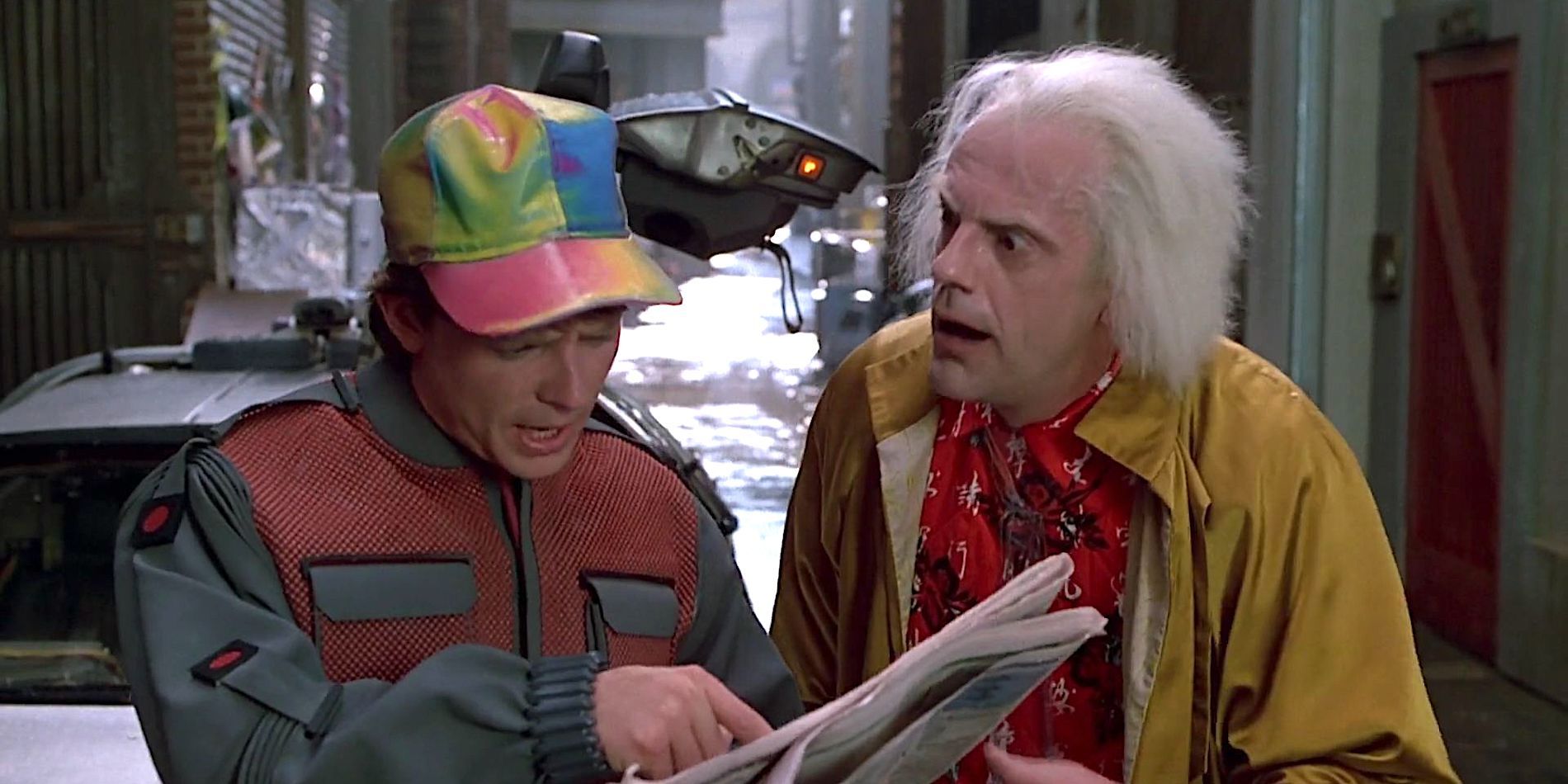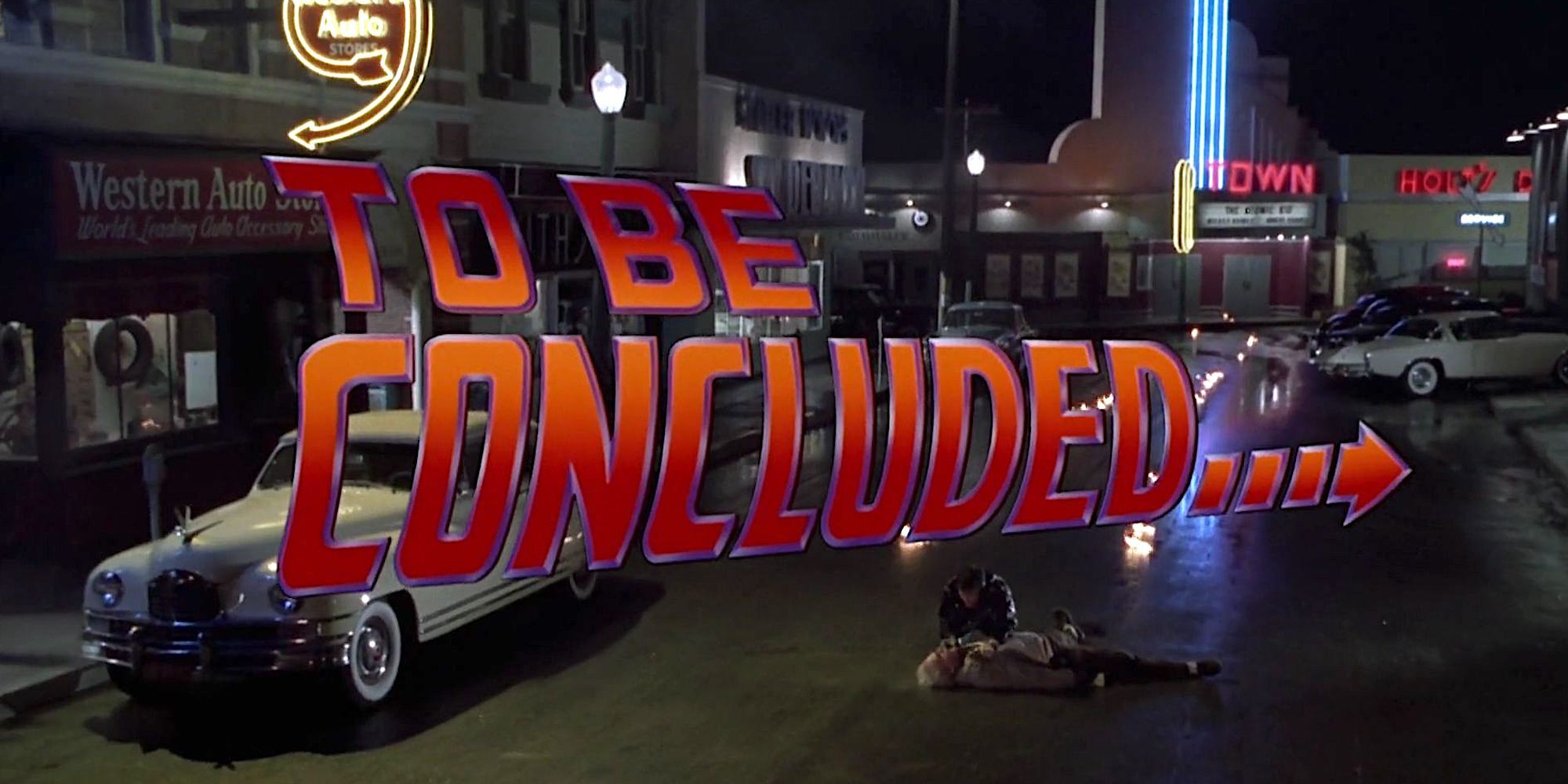After the massive success of the first film, Back to the Future Part II didn't fare so well with critics, and there's a good reason its reviews were worse than those of the original. Back to the Future was one of the standout blockbusters of the 1980s, and its legacy as one of the most beloved and influential films of all time stretches almost four decades. Following the first accidental time-traveling adventure of Marty McFly as he nearly erases himself from existence, Back to the Future's simple-yet-effective story won the hearts of audiences and critics alike.
Praise for Back to the Future was, and has remained, overwhelmingly positive. However, when friends Marty McFly and Doc Brown continued their time-hopping adventures in the sequel Back to the Future Part II in 1989, critical reception was mixed. In the years since its release, the second movie in the Back to the Future trilogy has been reappraised and is now considered one of the best sequels of all time, but there were actually very logical reasons for its initially less-positive reception.
Despite Back to the Future achieving a 90% score on Rotten Tomatoes, Back to the Future Part II has only a 64% score. Critical reappraisal for the second installment, after the release of Back to the Future Part III, has been more favorable, proving that it works better as part of a trilogy than it does as a standalone film. Many criticized Back to the Future Part II's alternate timeline scenes, which were considered needlessly dark, and the movie's cliffhanger ending, which was seen as something of a shameless plug for the next installment. Compared to the more straightforward and contained plot of the first film, Back to the Future Part II was considered a step down in quality, particularly before it was reevaluated in light of Back to the Future Part III's conclusion of the trilogy.
One of the widely criticized aspects of Back to the Future Part II upon its release was its "overstuffed plot." The sequel featured more time travel than the original, making for a story that jumped from the present to the future, to the alternate present, and then finally again to the past. This made Back to the Future Part II heavier on the science fiction elements than the first Back to the Future movie was by a considerable margin, and critics of the day believed this made the sequel feel "uneven," according to the Rotten Tomatoes consensus.
In addition to the less linear plot, Back to the Future Part II's ending was designed specifically as a cliffhanger. This parallels the ending of the first movie, although that ending was the promise of more adventures. Back to the Future Part II, however, made another follow-up a necessity, which was something unexpected in the 1980s. Some saw the cliffhanger as a cheap gimmick, but once Back to the Future Part III came along and paid off multiple aspects of the previous films, it cemented the Back to the Future trilogy of movies as one of the best trilogies ever made, which in turn led to a more favorable reappraisal of the second film. As screenwriter Bob Gale recalls, this reaction from audiences was in part because the studio didn't sell the sequel as a piece of something larger (via Den Of Geek): "If we had promoted Part II more as a part of a trilogy, people would have been more accepting...People were disappointed in Part II because of the ending. There were a lot of people who said, ‘Oh, that’s a rip-off ending. I’m not even going to go bother to see Part III.'"
Ultimately, when judged entirely on its own merits, and in direct comparison to the first movie, Back to the Future Part II was ahead of its time. This led to the critical opinion of the day being worse than that of the first Back to the Future, but time has been kinder to the sequel than might have been expected in 1989. Though aspects of Back to the Future Part II were criticized at the time, its cleverly written sci-fi story furthered the trilogy in a way that couldn't be fully appreciated until after the final installment was released.


